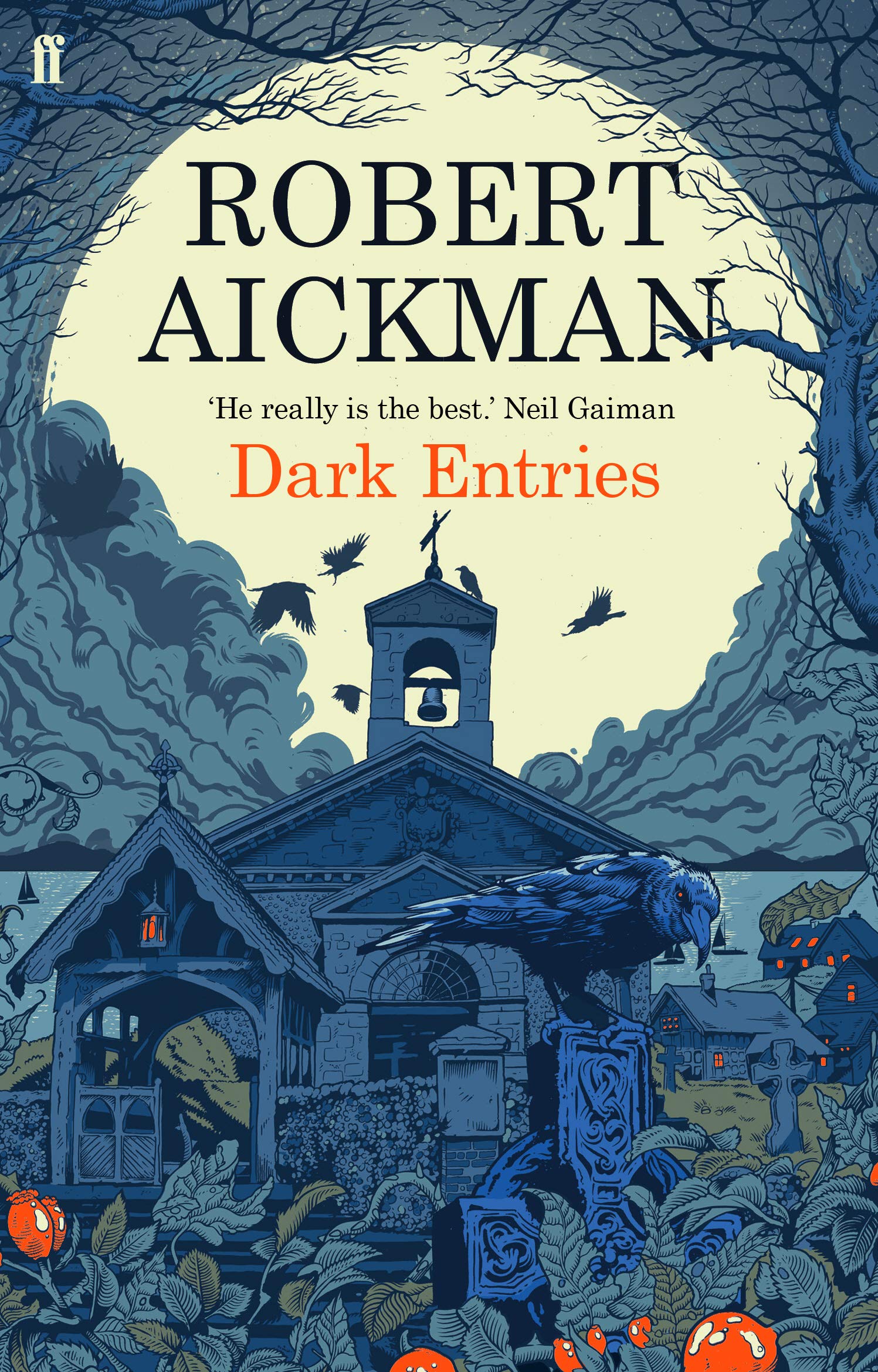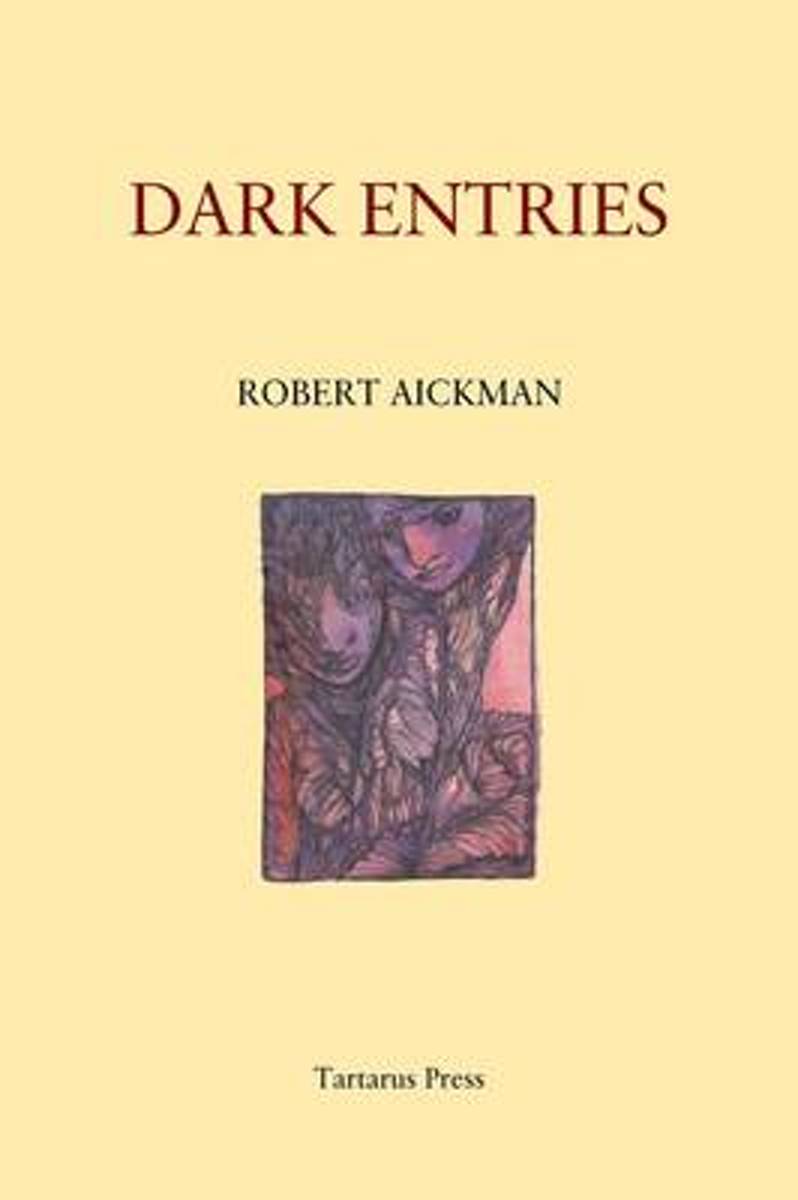Robert Aickman – Dark Entries (1964)
I am very late to the Aickman show; indeed, it was only last year that I learned of him. After a hasty trek through Cold Hand in Mine it was only last month that I decided to properly start with his bibliography, opting for a chronological order. My impressions concerning the themes of his stories have been quite positive up to now – he seldom uses trite subjects, and when he does he tends to spin them on new directions (see for instance how he uses the dead in Ringing the Changes). As for the supernatural, it is subtle, though usually existent. Implicitness is heavy, as is a talent for unusual takes on the macabre.
Robert Aickman has a very particular, easily recognizable style, that demands the reader’s focus. His writing is dense, though not archaic; it is elaborate, especially syntax-wise, creating sentence-cysts that occasionally require a second or third pass to be grasped.
Of course, his trademarks are not only limited to the interweaving of lengthy sentences and the rich vocabulary, or to implied horror. What makes him stand out is the way in which his text is crafted, writhing with detail, a substantial amount of which may well elude the reader’s first perusal (a lot seems to be revealed – or discovered – in each consecutive read). An Aickman story resembles an orchard with abundant, unnatural growth, full of paths, fruits, quick glances, fragments of history and uncanny spots; all of which could be perceived as objects of interest (if not importance) by the reader. Yet, despite this profusion, the writer never seems to lose control – something quite remarkable in such a density. I felt rewarded and fulfilled by going (or was it wading?) through the text; I did not feel any need of hurrying the turning of the pages, but rather basked in the way the words were interlaced, in the building up of the particular scenes and the ornaments exhibited down the character lanes.
Another feature which I had already discovered in my glide over Cold Hand in Mine is the abundance of steep endings: many of his stories have very abrupt, seemingly disjunctive (even to the point of disharmony) finales that create a rough sense of loss of momentum, a violent transformation of inertia. It is not that they are hasty – the transition in rhythm is qualitative: sometimes a sudden change of focus, sometimes an unexplained utterance.
It is interesting how Aickman uses the text’s innards (focus points, rhythm, character facets, the boundaries between signifier and signified) as well as the setting itself to (very successfully) evoke eeriness, not always resorting to the plot itself to disturb. The end result is the casting of vicious (if subtle) wounds on reality, as sudden fathomless shadows rain upon the reader’s expectations – deeply disturbing manifestations of the uncanny.
 Faber edition Faber edition |
 Tartarus Press edition Tartarus Press edition |
His stories may give the impression of intriguing, many-layered puzzles; superficially, their structure does have such a resemblance. But, despite the wealth of details and depth, there are no clear-cut, unambiguous solutions; only the subtlest shadows of a multitude of possibilities. The stories are not fortresses that may fall to the persistent conqueror; they are gardens and forests full of potential, places rich in quantum paths which branch out to a multitude of hues. Even after a second or third time, no definiteness presents itself, only charming keys that expand and enrich the options for speculation. In short, most of the stories cannot be fully understood, unraveled or dissected (though the attempt to do so is quite satisfying); instead they lend themselves to savoring and immersion.
In the end, Aickman’s work is revealed as a diptych (demanding focus and vigilance on one hand, and a knack for symbolic navigation on the other) catering to both conscious and subconscious parts of the reader. A sort of David Lynch of speculative fiction.
The stories:
The School Friend: An old school friend of the protagonist returns to her father’s house after his death. The house seems to have a weird effect upon her.
A masterful story, a subtle journey into female oppression, a spin on speculative fiction of the created, and a hint of Greek mythology, with strong Lynchean vibes, as well as a cryptic finale; this is a tour de force of Aickman motifs.
Ringing the Changes: A couple visit a seaside village where bells seem to be constantly ringing and the border between life and (un)death is occasionally thinning.
Less abrupt than the average Aickman, this is an exemplary lesson of how to craft an unsettling settlement. Strong aesthetical hints of the Carnival of Souls.
Choice of Weapons: A young man falls furiously in love at the first sight of a woman, becoming obsessed with her and ending up in a weird house crossing shoulders with even more weird characters.
It takes the reader through a spectral range of expectations before abruptly ending, leaving him dazed with a quintessential Aickmanish ending.
The Waiting Room: A man spends the night alone in a haunted train station room.
This short story is much smoother than its other counterparts. A traditional ghost tale which is a delight to read, creating a much appreciated wintry atmosphere.
The View: An artist ends up in the secluded manor of a woman, in an island where space seems to be malleable.
The book’s largest story, this has an almost dreamlike quality and more than a hint of Odysseus’ time with Circe and Calypso as well as folktales of time spent in fairyland. Can be a bit slow-moving, but ultimately satisfying.
Bind Your Hair: A woman visits her fiance’s village and family. She meets an eccentric old lady and wanders in the countryside discovering a strange labyrinth and equally bizarre guides.
A folk-horror masterpiece, slightly hinting of Machen’s The White People, also doubling over as a subtle study of the collective versus the individual (rural/urban, traditional/modern), of boundaries and their dissolving. My personal favourite of the book.
Get the book here (Tartarus edition) or here (Faber edition).